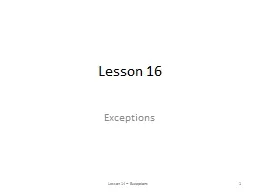PPT-Beethoven 6 th Class Unit 1, Lesson 4
Author : anya | Published Date : 2023-09-20
Ludwig van Beethoven was a German composer and pianist born on 16 th December 1770 Born in the small town of Bonn he began studying music at a young age Beethoven
Presentation Embed Code
Download Presentation
Download Presentation The PPT/PDF document "Beethoven 6 th Class Unit 1, Lesson 4" is the property of its rightful owner. Permission is granted to download and print the materials on this website for personal, non-commercial use only, and to display it on your personal computer provided you do not modify the materials and that you retain all copyright notices contained in the materials. By downloading content from our website, you accept the terms of this agreement.
Beethoven 6 th Class Unit 1, Lesson 4: Transcript
Download Rules Of Document
"Beethoven 6 th Class Unit 1, Lesson 4"The content belongs to its owner. You may download and print it for personal use, without modification, and keep all copyright notices. By downloading, you agree to these terms.
Related Documents














